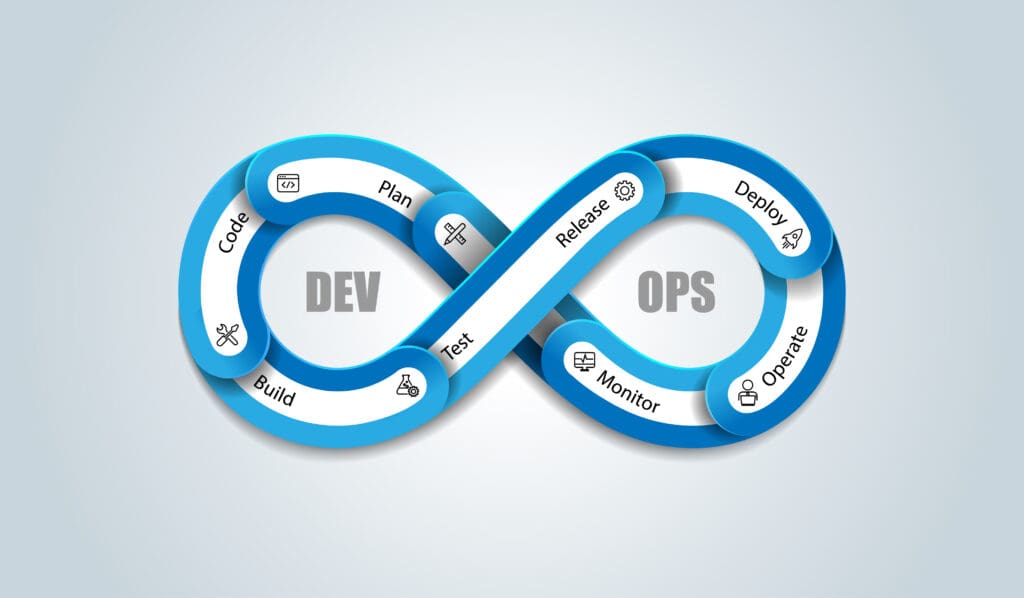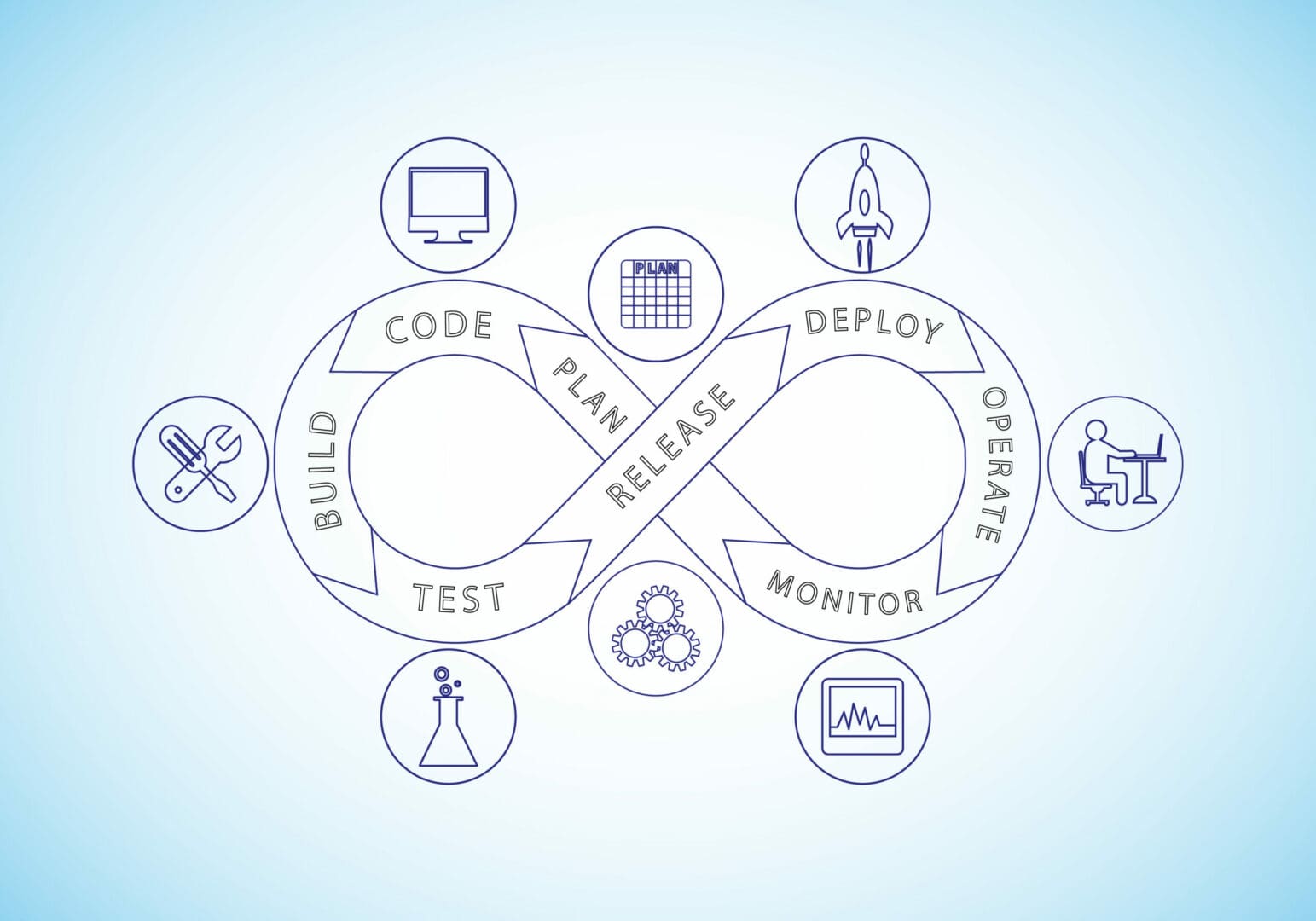In recent years, the field of DevOps has evolved significantly. There is no organization today that doesn’t aim to incorporate proficient DevOps professionals within its ranks propelling it two steps forward. It is a highly complex role that demands high technological skills alongside teamwork capabilities. This complexity makes it challenging to find DevOps professionals who can do the job. So why should you learn DevOps? All the answers are revealed in the following article.
What is DevOps anyway?
DevOps is a unique integration of development and operations, combining different work methods and tools to facilitate automation and integrate software development with IT operations. This approach allows the acceleration and optimization of service and product development processes within organizations.
DevOps teams consist of individuals with both development and IT skills. Their role spans the entire product lifecycle, aiming to enhance the speed and quality of software development and deployment. DevOps individuals actively engage in development, testing, deployment, and operation of systems, requiring them to have a multifaceted skill set. This new way of working has significant implications for teams and organizations adopting the DevOps methodology.
Why learn DevOps?
Huge demand for DevOps professionals
To meet the fast-paced and dynamic requirements of the tech world, the DevOps role has rapidly gained momentum in recent years, encompassing various responsibilities such as planning, development, testing, distribution, and product operation. This is precisely why tech companies are striving to integrate proficient DevOps personnel into their development teams – people with systemic vision, excellent interpersonal skills, and the ability to provide real-time creative solutions. The demand is truly immense, and if you are in the DevOps profession, there’s no doubt that your path to the next job will be much smoother.
Diverse and stable career
Alongside high demand, DevOps professionals enjoy attractive job offers. The unique skills required for DevOps positions make it difficult for recruiters to find good professionals, and they are willing to offer better conditions to surpass their rivals. The more experience and expertise you can gain in the field, the greater your potential for salary growth.
High salary
Many companies continually seek ways to improve their real-time work processes. This is precisely why DevOps professionals are in high demand and quickly recruited by organizations in need of certified experts to enhance the quality of their product development. The surge in demand in recent years has also led to higher salaries for DevOps developers.
Core position impacting the organization
DevOps personnel have a significant impact on the organizations they work for. They essentially conduct the entire orchestra as they aspire to embed an organizational culture that streamlines processes and carries numerous benefits, such as cost savings, optimizing resources, and improving the speed at which technological products are launched. DevOps roles allow organizations to operate more efficiently and adapt to changes more effectively. As awareness of the role’s significance grows, an increasing number of organizations are embracing its adoption.
Professional challenge
The daily routine of a DevOps professional includes continuous and seamless interaction with development, operation, QA teams, and more. As each team in an organization includes individuals with different roles, one of the main tasks of a DevOps professional is to bridge them to advance processes. Additionally, they need to demonstrate advanced technical abilities, including familiarity with tools and automation, to identify bottlenecks and build necessary solutions.
While developers are required to think in-depth, DevOps personnel need broad thinking skills, envisioning the bigger picture, analyzing organizational workflows to streamline and improve them. To characterize the ideal DevOps professional based on a few key traits, they must possess systemic vision, a service-oriented nature, and technological approach.

DevOps Pro – Infinity Labs R&D Career Path
The DevOps Pro track at Infinity Labs R&D is not just another DevOps course in the market, but a comprehensive, unique, and in-depth program where students learn and practice extensively with hands-on work. The program is 20 weeks, and is based on the Infinity Labs R&D Mentored Social Learning (IMSL™) methodology developed in-house. It combines a unique methodology with independent research, teamwork, and a simulated work environment that mirrors a development team in the industry. Upon completing the program, students integrate into DevOps positions in Israeli and international tech companies, typically requiring a few years of experience.
The program is divided into two parts – learning technological infrastructure and deepening methodology. Learning the infrastructure encompasses system realms, development languages, operating systems, and more. Deepening the methodology includes SDLC stages, familiarity with potential professional challenges, and common tools and solutions in the industry for these challenges.
On the business side, the program operates on a WIN-WIN-WIN model: the training stage is provided at the expense of Infinity Labs R&D, and only when the students are successfully hired by one of the company’s clients and perform well over time, the company then recovers the investment and profits from the process.



